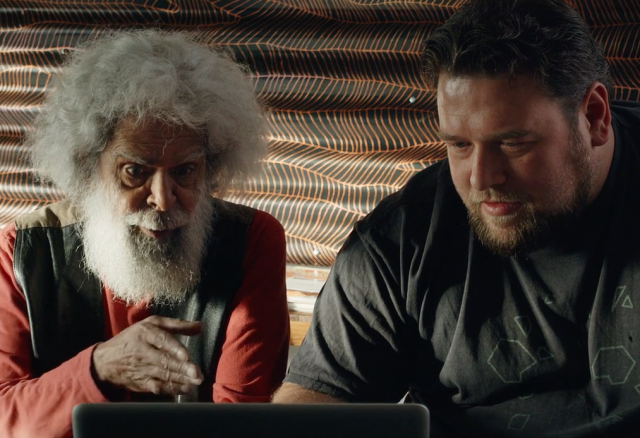By Tyler Wright
During NAIDOC Week, two filmmakers discussed their new film in a webinar celebrating those who have driven and led change across Aboriginal and Torres Strait Islander communities over generations.
It was held by the Public Record Office, featuring filmmakers Tiriki Onus and Alec Morgan talking about the making of their film”Ablaze;” on Thursday 7 July.
The feature documentary focuses on Tiriki’s grandfather Bill Onus; a high-profile activist and successful entrepreneur who built one of the first businesses owned by an Aboriginal person in the town of Belgrave.
The film follows Bill and other activists Marge Tucker, Joyce Johnson and Sir Doug Nicholls as they ignited a civil rights movement that would change the course of history.
“I’d always had a great admiration for Bill in a sense I felt he had been left out of history,” writer and director Alec said.
“It was a great place to start for a historical journey.”
Maquarie University allowed Alec to use a camera alongside the institution’s editing and research facilities to create the film, which enabled the duo to head out and interview Bill’s relatives and those who knew him.
“We were able to go out before knowing a lot of the story, which allowed us to unfold the detective story we were on.”
The idea of the film started when Alec found nine and a half minutes of a recorded play directed by Bill in support of the first major Aboriginal stock workers’ strike in the Pilbara in Western Australia.
It was then he contacted Tiriki, Bill’s grandson, who had a theatre background and jumped at the chance to piece together the life of Aboriginal activists in the 1940s.
“The community was shown with such strength and resilience, which certainly was not the prevailing narrative that was coming through newsreels or any other moving images of Aboriginal people, if there were any, in the 1940s,” Tiriki said.
Tiriki said the process of filming, which took six years, allowed them to capture the heart of the story.
“It wasn’t really extractive – it was about us identifying the stories that were important, that people had the burning desire to tell, and having the opportunity to bring those to the fore,” Tiriki said.
“Aunty Alma Thorpe suddenly identified where one piece of the footage came from which was [in a] Fitzroy [street],” Alec added.
“These little fragments became part of the detective work finding out what was in that film and Bill’s relationship to that film.”
Alec said the progress of recognising Aboriginal and Torres Strait Islander activists and storytellers has progressed but also takes a step back at times.
“Back in the 1970s, where land rights and self-determination [were apparent], there’s often a movement from the Aboriginal side, but often those ideals are prortayed down the track,” Alec said.
Tiriki said sourcing Aboriginal content and filmmakers is “vital” and shows like Mystery Road are a sign of collaboration.
I think there is so much out there to be told, and we will continue to refine how we engage in those spaces,” he said.
“These are stories that we need”.







